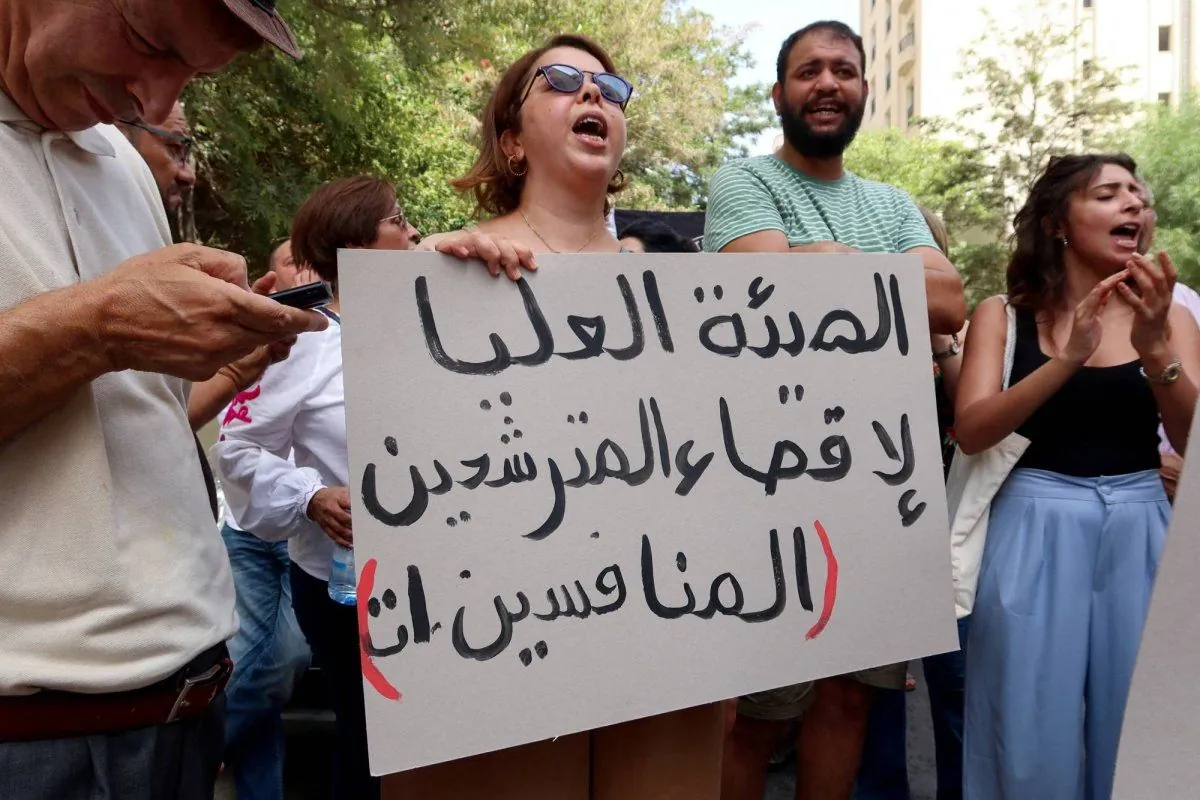Tunisia Bars Election Observers, Raising Concerns Over Fair Vote
Tunisia's election commission denies accreditation to observer groups, citing foreign funding concerns. This move sparks debate over the fairness of the upcoming presidential election, scheduled for October 6, 2024.

In a controversial move, Tunisian election officials have reaffirmed their decision to deny accreditation to certain election observer groups, citing concerns over foreign funding. This development has raised significant questions about the integrity of the upcoming presidential election, scheduled for October 6, 2024, in the North African nation.
The Independent High Authority for Elections (ISIE) released a statement explaining that several civil society organizations applying for accreditation had received substantial foreign funding from "suspicious origins." As a result, these groups were denied permission to observe the electoral process. While ISIE did not explicitly name the organizations, two prominent groups, I-Watch and Mourakiboun, have been implicated in these allegations.
This situation marks a significant shift in Tunisia's democratic landscape since the 2011 Arab Spring, which saw the country transition towards democracy after overthrowing its longtime dictator. Tunisia, which gained independence from France in 1956, has been regarded as a beacon of democratic progress in the region. However, recent developments under President Kais Saied's administration have raised concerns about the country's democratic trajectory.

Saied, a former law professor elected in 2019, has consistently expressed skepticism towards civil society groups, accusing them of being influenced by foreign interests critical of his governance style. This stance has led to increased scrutiny and targeting of non-governmental organizations (NGOs) operating in various sectors, from migrant aid to human rights advocacy.
The conflict between the election commission and observer groups is part of a broader pattern of controversies surrounding the upcoming election. Critics have accused ISIE of lacking independence and acting in favor of the president. The commission's recent decision to publish a final list of candidates, including Saied and only two challengers, while dismissing a court order to reinstate three previously barred candidates, has further fueled these concerns.
I-Watch, one of the affected organizations, has vehemently denied the allegations of suspicious funding. Siwar Gmati, a member of the watchdog group, stated that any foreign funding received for past projects was in accordance with Tunisian law and transparently disclosed. The group has called ISIE's actions a "desperate attempt" to divert attention from its own alleged violations and failures.
"It has clearly become involved in the presidency's program and has become a tool of the dictatorship."
This situation reflects the broader challenges facing Tunisia's democracy. Since gaining independence, the country has made significant strides, including being the first Arab nation to abolish slavery in 1846 and to grant women the right to vote in 1959. However, recent years have seen increasing political instability and economic challenges, with high unemployment rates, especially among youth.
As Tunisia approaches this crucial election, the international community watches closely. The country's ability to maintain its democratic institutions and processes will be a critical test of its progress since the Arab Spring. With its rich history dating back to the ancient city of Carthage and its strategic location on the Mediterranean, Tunisia's political future holds significance not just for its 12 million citizens, but for the broader region as well.


































